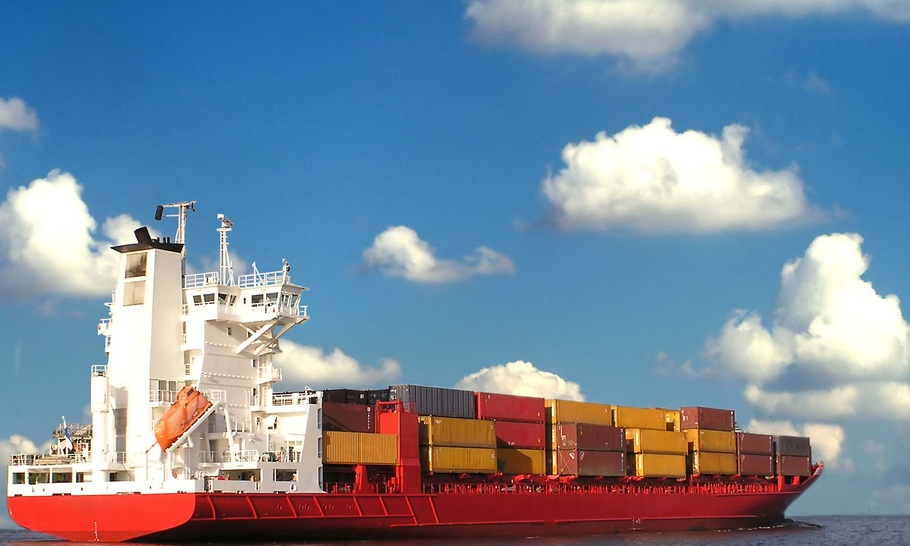The trading relationship between Britain and the EU is flourishing. No Deal shouldn't change that.

sea-ocean-ship-transportation-transport-vehicle-1092735-pxhere.com_
The public can be forgiven for having lost the plot on Brexit. This week one “meaningful vote” (on a revised version of the Withdrawal Agreement) has been postponed, but another, possibly no less meaningful, vote (on an amendment by Yvette Cooper and Sir Oliver Letwin to force a delay of Brexit in the absence of a deal) will take place. This could result in yet another defeat for the Government and yet more ministerial resignations.
Meanwhile Theresa May is attending yet another summit at which yet more meetings with EU officials will take place and yet again no progress will be made. More talks will take place in Brussels this week, but Downing Street is lowering expectations. The Prime Minister is trapped: in effect, she needs to win support for her deal from the Commons before she can wring concessions from the EU, but the Commons won’t back her deal until such concessions have been made. Unless Mrs May can find an exit from this maze, Britain cannot find an exit from the EU. No wonder many people have concluded that we should just leave without a deal, no matter what dire predictions are made. Better an end with horror than a horror without end.
Yet the real drama is taking place elsewhere, deep inside the corridors of power. There decisions are taking place that affect ordinary people just as much as the questions that preoccupy MPs. Who, for example, decided that in the event of no-deal, Britain would impose tariffs on food imports from the EU? This highly questionable decision was announced last week in a speech to farmers by Michael Gove, the DEFRA Secretary. Not until days later did the Guardian point out that this could mean big rises in food prices.
Mr Gove was reassuring farmers that a no-deal Brexit would not lead to a zero-tariff regime on food across the board, allowing cheaper food imports to undercut British producers. But his promise of “specific and robust protections for farming” (including meat and dairy production) would almost certainly mean new tariffs on the wide range of foods that we import from Ireland, France and other EU members. Such protectionist measures to cushion 45,000 farmers — who have already been promised new subsidies from the taxpayer to replace the Common Agricultural Policy — would penalise tens of millions of consumers. Is that fair? And if not, why has Parliament ignored it so far?
The answer is twofold. MPs don’t want to think about the practical consequences of a no-deal Brexit, even though it is they who have made it ever more likely by voting down the only deal on the table. Now they are panicking about the consequences of their own actions. After all, who passed the Act of Parliament that means Britain will leave the EU on March 29, with or without a deal?
The other problem is that most MPs don’t understand economics and they aren’t interested in what is actually going on in our trade with the EU. Admittedly, most politicians don’t understand Ricardo’s theory of comparative advantage, on which the whole idea of free trade is based, even though it is one of the first things economics students learn. For example, President Trump thinks other countries will pay the US Treasury the cost of the tariffs he is imposing on imports from China (and threatens to impose on those from the EU too). In fact, of course, these tariffs are a tax on Americans.
It is the same here: MPs should be up in arms at the idea that Britain will suddenly impose new tariffs on imports from the EU, rather than cutting them on imports from the rest of the world. It has been known since 1817, when Ricardo published his Principles of Political Economy that free trade benefits both trading partners by causing each to specialise in producing the goods or services in which it enjoys a comparative advantage. We cannot prevent the EU from imposing tariffs on our exports to them, but we do not need to retaliate by making our imports from Europe more expensive. A no-deal scenario only requires emergency measures to prevent shortages if the Government interferes with the markets by protectionist policies.
The good news, which few have noticed in the present doomsday atmosphere, is that trade with the EU is enjoying an unprecedented boom. Between 2015, before the referendum, and 2017, UK exports to the EU grew by some £50 billion to £274 billion, while imports grew by a similar amount to reach £341 billion. After falling as a proportion of our total trade for many years, imports from and exports to the EU are on an upward trajectory.
So there is no good reason to ruin a flourishing trading relationship, even in the event of a no-deal Brexit. Not only is the EU Britain’s largest trading partner, but Britain is the EU’s second largest trading partner, only slightly behind the United States. There is nothing at all to prevent both sides from agreeing to preserve free trade between us. Neither side has anything to lose and a great deal to gain. To destroy jobs and livelihoods by wrecking one of the world’s most important and lucrative trading relationships would be an unforgivable act of folly.





